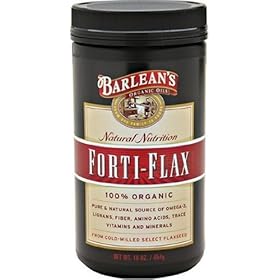Filed under: General Health
Through the course of reading some blogs and articles I came across this reference to the “Israeli-paradox” that I found rather interesting. While many people are familiar with the “French-paradox”, since the French consume rather large amounts of saturated fats yet have an incredibly low heart disease rate for a developed nation. In reality this shouldn’t be considered a paradox at all, but that is another story for another day.
Anyway, this “Israeli-paradox” is that one that I think should be looked at more closely. I was going to rewrite the abstract here in my own words, but it is a beauty, so I will just post it instead:
“Israel has one of the highest dietary polyunsaturated/saturated fat ratios in the world; the consumption of omega-6 polyunsaturated fatty acids (PUFA) is about 8% higher than in the USA, and 10-12% higher than in most European countries. In fact, Israeli Jews may be regarded as a population-based dietary experiment of the effect of a high omega-6 PUFA diet, a diet that until recently was widely recommended.
Despite such national habits, there is paradoxically a high prevalence of cardiovascular diseases, hypertension, non-insulin-dependent diabetes mellitus and obesity-all diseases that are associated with hyperinsulinemia (HI) and insulin resistance (IR), and grouped together as the insulin resistance syndrome or syndrome X. There is also an increased cancer incidence and mortality rate, especially in women, compared with western countries. Studies suggest that high omega-6 linoleic acid consumption might aggravate HI and IR, in addition to being a substrate for lipid peroxidation and free radical formation. Thus, rather than being beneficial, high omega-6 PUFA diets may have some long-term side effects, within the cluster of hyperinsulinemia, atherosclerosis and tumorigenesis.”
While this is not direct cause-and-effect research, it certainly shows a relationship between their intake and the long-term results. For those of you who don’t speak scientist, what they are essentially saying is that the Israeli population, with their high intake of polyunsaturated fats, have a greater incidence of cardiovascular disease, hypertension, type 2 diabetes, obesity, cancer and mortality!
For a long time on this blog I have been railing against people consuming large amounts of industrial vegetable oils, which are far and away the largest sources of omega-6 polyunsaturated fats. Hopefully researchers in the US begin to recognize that while polyunsaturated fats may “lower” LDL (probably through artificial means, as they probably just make the LDL small and dense, lowering the “measured” amount, which makes them more prone to oxidation and becoming atherogenic, but I digress) and therefore theoretically “decrease” risk of cardiovascular disease, they are not actually decreasing cardiovascular disease! And in the process they might actually be increasing the risks of CVD, along with diabetes, obesity, cancer and overall mortality!
Awesome, keep those industrial PUFA oils coming (corn, cottonseed, safflower, soybean, sunflower)!

Filed under: General Health, Nutrition
A classmate of mine recently sent me an interesting article from a presentation given at the IFT conference back in June. The article was asking “Is saturated fat really the dietary bogeyman?”
Some high profile cardiovascular health researchers weighed in on the topic, and here is what they had to say:
“Dr Rozenn Lemaitre from the cardiovascular health research unit at the University of Washington, said reducing saturated fat intakes had been the “cornerstone of dietary guidelines” for years.
However, the evidence linking saturated fat and risk of cardiovascular disease was “not conclusive”, she said, and must be evaluated in the context of its replacement by other macronutrients.
The ”real enemy” said Lemaitre, is trans fat.”

“Dr Pramod Khosla, associate professor at the department of nutrition and food science at Wayne State University in Detroit, added: “Saturated fat per se is not really doing anything when it comes to cardiovascular disease risk. What’s more crucial is to look at what people are replacing it with.”
The discussion also turned to the fact that we don’t eat saturated fat, we eat food, and food is highly complex and greater than the sum of its parts. Often times foods high in saturated fat are themselves associated with decreased cardiovascular disease risk!
“Similarly, it was also clear that major food sources of saturated fat such as milk also contained other constituents that could reduce the risk of coronary heart disease, they said. As for replacing sat fats with monounsaturated fatty acids (MUFAs), there was “insufficient evidence to judge the effect on coronary heart disease risk of replacing saturated fatty acids with MUFAs”.”
The conversation also discussed polyunsaturated fats and the confusion surrounding them. You have some researchers in one corner declaring their greatness, and you have others (as well as people like me) telling you to be wary of too many omega-6 fatty acids. Here is what was discussed.
“It would have been “more helpful” if the guidelines had been specific about which PUFAs to use, given that high intakes of the omega-6 PUFA linoleic acid at the expense of the more beneficial omega-3 PUFAs EPA and DHA could do more harm than good, argued Captain Joseph Hibbeln, acting chief, section on nutritional neurosciences at the National Institutes of Health.
He added: “A clear distinction should be made between omega-6 and omega-3 PUFAs in future advice.”
Frustratingly, claims about the benefits of omega-6 fatty acids made by some scientists were based on clinical studies in which participants had been supplemented with omega-3 and omega-6, which meant their results were unreliable, he added.
“If you pool results of trials just looking at omega-6 PUFAs you see no heart benefit; they actually signal harm.”

I can’t agree with that conclusion any more! I would highly encourage you to read the entire article, though I did quote a large portion of, there were some other great pieces that I didn’t even mention that would be worth reading.
In the end the conclusion seems to be that saturated fat from high quality, minimally processed real food is not a bad thing at all. Many of the foods rich in saturated fats also contain things like CLA, vitamin K2, MCT’s and more that have tremendous health benefits.
In addition, replacing saturated fats with polyunsaturated fats from vegetable oils is a mistake, and could do more harm than good. Instead simply ensure that your food sources of saturates are from pasture-raised animals or unrefined oils. It would also be wise to include more fatty fish or fish oil in your diet, to get in the right type of polyunsaturates – omega-3′s.
Filed under: Nutrition
Q). What are your thoughts about ALA conversion to DHA as well as antinutrient content in flax? I read that Cordain has changed his stance on flax and doesn’t recommend them anymore, but I’d be curious to hear what you have to say.

A). ALA conversion to EPA and DHA is varied and quite poor overall. Studies have ranged from 0 to 12%, though it varies per person and by sex, with women seemingly converting more than men. Now this doesn’t mean that ALA doesn’t have any benefits. It is still beneficial and has been associated with a decreased risk of cardiovascular disease. While I wouldn’t go crazy with it, and I am not a big fan of large doses of flaxseed oil, I think that flaxseed has tremendous benefits.
Flaxseed and its inherent lignan content have been shown to suppress atheroslcerosis, reduce LDL cholesterol, increase HDL cholesterol, decrease markers of inflammation (such as C-reactive protein) and raise blood levels of omega-3′s. Here are a couple of review studies on flaxseed and cardiovascular disease if you want to take a look yourself.
http://www.ncbi.nlm.nih.gov/pubmed/14995053
http://www.ncbi.nlm.nih.gov/pubmed/19568181
So yes I think moderate flax consumption is not only a good thing, but a great thing.
Q). Brian,
Given the spirit of this blog post, do you think the information in the following post (specifically the portion toward the bottom under the heading of “Hemp: Not For Human Consumption”) misses the mark by throwing hemp products under the bus? From the tone of the comments, it sounds like their verdict on hemp would remain as is, even when considering that a portion of the n-6 PUFA’s in hemp are from GLA. http://www.westonaprice.org/farm-a-ranch/457-instead-of-soybeans-hemp-and-kenaf.html

A). While I do think the WAPF has some great content, they have plenty of things that I do not agree with as well. This question can be summed up in so many ways by my blog post on the omega-6 to omega-3 ratio. I think people take the omega-6 content of a food too far. If huge portions of your diet contain large amounts of industrial vegetables oils (like corn oil) that contain tremendous amounts of omega-6′s, are highly processed and prone to oxidation then that is a problem.
If you consume a moderate amount of hemp, say 1-2 tbsp of seeds per day, or a scoop of protein, or some hemp seed butter, or some moderate combination and you also consume your fish oil, some flax, some chia, some walnuts as well as cold-water fatty fish and grass-fed meats, then no it is not a problem whatsoever. Hemp contains omega-3′s, mainly in the form of ALA like noted above in the flax Q & A, and it also contains SDA, a relatively rare omega-3 that highly converts to EPA, much more readily than ALA.
The actual ratio of omega-6 to omega-3 in hemp is actually around 3:1, so I really do not see how this is a food unfit for consumption. Plus, like you noted many of the omega-6′s come from GLA, which is actually an anti-inflammatory omega-6.
I do prefer that people eat the whole food, like the seeds themselves, rather than the oil since you also get fiber, protein, vitamins and minerals and antioxidants that help prevent oxidation. Overall, I think hemp is a fine food and is definitely fit for human consumption. If you want to read more I blogged all about the goodness of hemp.









Posted on February 2nd, 2011 by Brian St. Pierre
5 Comments »